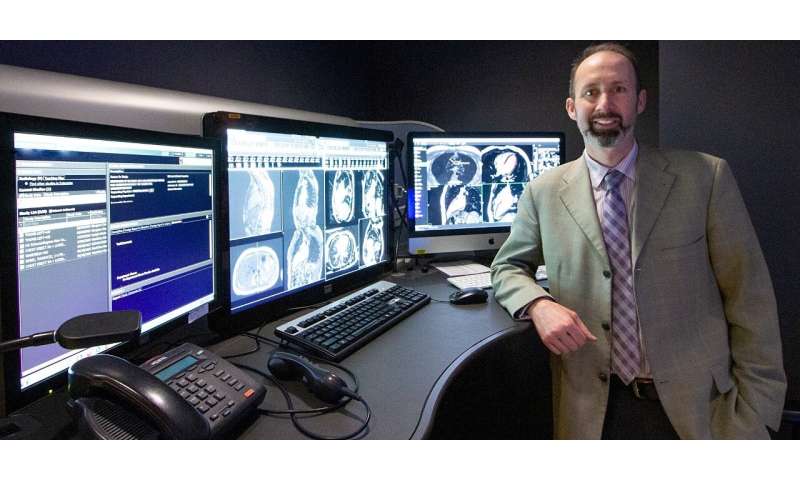MRI scans unnecessary to diagnose heart failure, new study suggests

A new study from University of Alberta cardiac researchers casts doubt on the standard practice of using magnetic resonance imaging (MRI) to help diagnose the causes of heart failure not related to a heart attack.
In a study published in the journal Circulation, 500 patients with heart failure from Canada and Finland were randomly selected to receive either a routine MRI and echocardiogram, or just an echocardiogram with MRI included only in select instances. They found that both approaches had about the same impact on heart-failure diagnosis.
“As far as we could tell, the routine MRIs didn’t add any value to the diagnosis,” said Ian Paterson, a professor of medicine and the study’s principal investigator.
“While there may be some specific heart-failure conditions where MRI might be helpful in diagnosis, in the vast majority of cases, it appears that patients wouldn’t really benefit from it.”
Paterson’s study is the first randomized controlled trial to investigate the utility of cardiac MRIs in diagnosing heart failure unrelated to heart attacks. Canadian and international clinical guidelines provide recommendations for cardiac MRI in the investigation of heart failure, but the guidelines are largely based on expert opinion and not high-quality clinical trials, Paterson said.
“I think a lot of doctors feel that since the MRI provides a lot of high-quality information, it must be an advantage,” he said. “But doctors are also getting a lot of useful information from other baseline testing, including a proper history, the physical examination and the echocardiogram.
“Our study shows that’s usually good enough in most cases.”
Possible health care savings
Paterson said he hopes his findings will help shape new guidelines for cardiac MRI use and encourage physicians to think twice before ordering them for diagnosis. MRIs can cost up to $1,000 each time, so reducing the number of unnecessary procedures could save the health-care system hundreds of thousands of dollars each year.
It would also make it easier for patients who do need MRIs to get their tests sooner, Patterson noted.
“We have a six-month wait time for cardiac MRIs here in Edmonton, and this would obviously be exacerbated if we’re doing tests that don’t need to be done,” he said. “Patients also have to take time out of their lives to come get the MRI, so it’s good to not have to come for testing if you don’t need to.
“Ultimately, we want to make sure that we are recommending the right tests for the right patients.”
Source: Read Full Article


